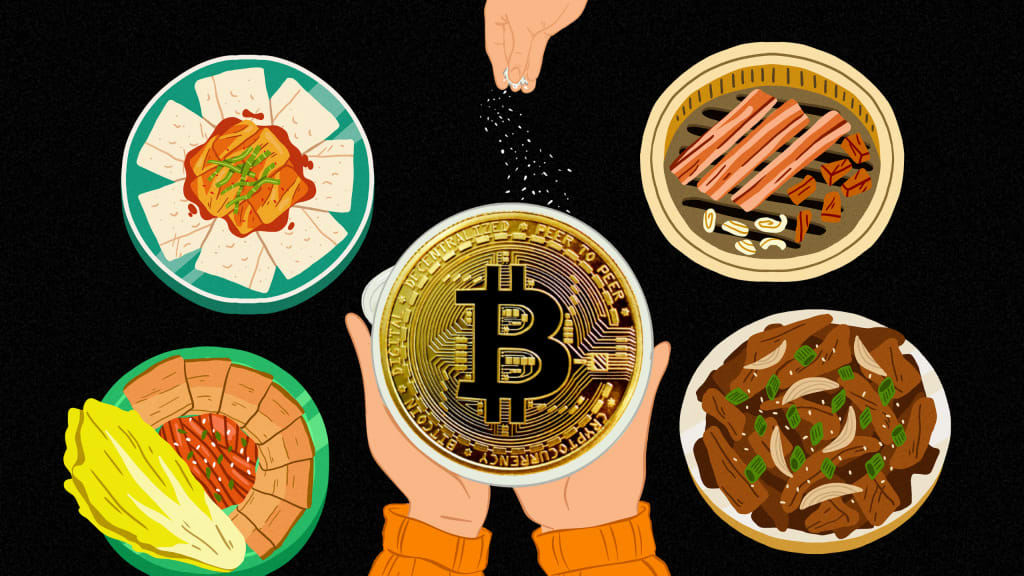3 Ways Blockchain Technology Is Improving the Food System
Protecting consumers, profits, and the environment while doing so

What is blockchain?
Picture this, you have a notebook and your group of friends all have a copy of it. It can be used to keep track of things like the money you owe each other or the purchases you made from the cookie sale you all took part in.
Imagine that you have a large stack of notebooks instead of just one and that each notebook represents a “block.” Like the notebook, each block provides a record of recent transactions. And when you want to make a new transaction, like buying something or sending money, you record it in the next empty block.
As a result, once something is written in a block, it cannot be modified or removed. This means that nobody in the group can cheat or steal because they can all rely on the accuracy of the notebook. The name of this technology is blockchain.
Although the cryptocurrency market is where blockchain technology is most commonly associated, its uses go well beyond that. The food industry is one sector that has started to pay attention to blockchain’s advantages.
1. Improve supply chain traceability
With blockchain, companies can track food products as they move through the supply chain, from the farm where they are grown or raised, to the processing facility, to the distributor, to the retailer, until the product finally reaches your plate.
Recording this information in a digital ledger creates a transparent and tamper-proof system that can be accessed by anyone in the supply chain. This not only improves visibility and traceability, making it simpler to spot and resolve any problems that may develop, but it also lowers the incidence of food fraud.
Companies can use blockchain to verify that the food items they are selling are genuine and not counterfeit, which is crucial for high-value goods like organic or luxury goods. By making it simpler to detect and recall contaminated products, it can also increase food safety.
IBM is an example of a company that is using blockchain for supply chain traceability in the food industry. Several significant food corporations, including Walmart and Nestle, use IBM Food Trust, a blockchain-based technology, to track the origin of food items. The technology improves transparency and traceability by allowing supply chain parties to exchange data about food goods.
2. Improve food safety and quality

Companies and organizations can create a safe and transparent record of all the information related to the production, processing, and distribution of food goods using blockchain technology. This means that everyone involved in the supply chain has access to this data and can collaborate to guarantee the safety and high quality of the food we consume.
Blockchain can accomplish this in part by using smart contracts. These are similar to digital instructions that can be set up to automatically carry out specific tasks when certain criteria are satisfied. For instance, the smart contract can automatically initiate a recall if food contamination is discovered. This can help identify and remove contaminated products from the supply chain promptly, lowering the risk of contracting a foodborne illness.
Digital certificates are another method that blockchain may guarantee the safety and quality of food. These documents can be used as proof that food products adhere to specific requirements, such as being organic or GMO-free.
A blockchain-based network is being developed by the Swiss startup Ambrosus to increase food quality and safety. With the help of the platform, businesses can track food goods all the way from the farm to the customer and record information about them in a tamper-proof digital ledger. This information can be used to quickly identify and recall contaminated products as well as to make sure that food products adhere to particular criteria, such as being organic or non-GMO.
3. Improve food sustainability

Businesses and organizations can provide transparency and traceability by utilizing blockchain to track the movement of food goods in their supply chain. To find inefficiencies and places where resources are being wasted, this information can be utilized.
For instance, businesses can use blockchain to track the amount of food that is wasted throughout the supply chain. They can utilize this knowledge to determine the reasons for food waste and take action to cut it down.
Additionally, the production and processing of food products can be tracked using blockchain technology to monitor the use of resources like water and electricity. Companies can pinpoint areas where they may increase resource efficiency and lessen their environmental effect by measuring these resources.
I love the notion of businesses making efforts to lessen their negative environmental effects and support sustainable food production. Additionally, I believe that because I care more about the environmental impact of the products I buy, as a consumer, companies that can reduce their environmental impact will appeal to me more.
Reference
- https://originstamp.com/blog/5-benefits-of-blockchain-in-food-supply-chains/
- https://www.canr.msu.edu/news/blockchain-technology-in-the-food-industry
- https://www.frontiersin.org/articles/10.3389/fbloc.2020.00007/full
About the Creator
Eshan Samaranayake
Exploring how biotech, food tech, alternative proteins, and business can help develop a sustainable world 🌏 https://linktr.ee/eshan.s






Comments
There are no comments for this story
Be the first to respond and start the conversation.